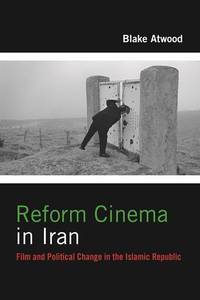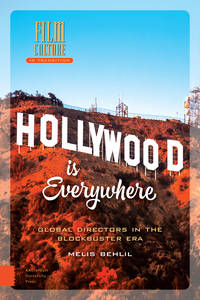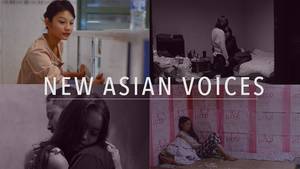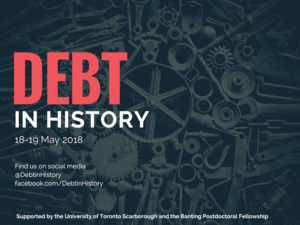 During the month of May, Filmatique will host a collection of films from New Asian Voices. First films from Peng Fei Song, Hyun-ju Lee, and Eddie Cahyono screen alongside the elegant third feature from Le-Van Kiet.
During the month of May, Filmatique will host a collection of films from New Asian Voices. First films from Peng Fei Song, Hyun-ju Lee, and Eddie Cahyono screen alongside the elegant third feature from Le-Van Kiet.
Though from countries as diverse as China, South Korea, Indonesia and Vietnam, common themes pervade these narratives — rapid urbanization, economic hardship, ill-fated love, and the erosion of individual identity. Peng Fei Song’s Underground Fragrance delves into a sprawling subterranean community on the outskirts of Beijing; Eddie Cahyono’s Siti takes place in a small Indonesian beach town. Both, however, explore communities forsaken by society, and the determination of young people to survive by whatever means they can. While both Gentle and Our Love Story explore the vicissitudes of love, the former deconstructs an unequal marriage and the role of religion in contemporary Vietnam while Our Love Story chronicles the fears and jubilations of a first love unfolding amid homophobic attitudes in South Korea.
Filmatique’s New Asian Voices Series assesses the social, political and cultural landscape of contemporary Asia through some of the newest and most exciting voices in its cinema.
May 4 – Underground Fragrance by Peng Fei Song / China, 2015
A doomed romance between two inhabitants of a vast underground labyrinth portrays a little-seen Beijing community’s collective dream — to surface to air. Underground Fragrance provides a dark portrait of rapid urbanization and the consequences of economic stratification in contemporary China. The use of silences and extended, masterfully composed shots lends a haunting, surreal atmosphere to this debut feature, registering Peng Fei Song as a talent to watch.
Underground Fragrance premiered at Venice’s Giornate degli Autori, where it won Best Film, and Chicago where it won Best New Director.
May 11 – Our Love Story by Hyun-ju Lee / South Korea, 2016
Yoon-joo is a timid art student in the midst of preparations for her graduate exhibition. Ji-soo is a bartender who radiates confidence. Following a chance encounter at a convenience store they embark on a romance that defies what remain intolerant attitudes toward homosexuality in South Korea. Hyun-ju Lee’s lyrical debut feature explores the nuances of first love between two characters that just happen to both be women.
Our Love Story premiered at San Sebastián, Vancouver, and Jeonju, where it won the Grand Prize for Best Korean Film.
May 18 – Siti by Eddie Cahyono / Indonesia, 2014
Siti is a young mother living in Indonesia. After her husband was gravely injured in a fishing accident, Siti is the sole breadwinner in the household — beachside crab-cracker vendor by day, karaoke entertainer by night. This vivid black-and-white portrait of an ordinary Indonesian woman transforms a symptom of economic hardship — the need to hold two jobs — into a mise-en-abîme of the schizophrenic relationship between a corrupt, oppressive society and its citizens.
Eddie Cahyono’s visually stunning debut feature premiered at Singapore, Hong Kong, Hamburg and Shanghai, where it won Best Screenplay.
May 25 – Gentle by Le-Van Kiet / Vietnam, 2014
Linh is a Vietnamese woman saved from an arranged marriage by Thien, a well-to-do pawnshop owner. She is young and curious; he is older, more controlling. Over time Thien’s unsentimental approach to marriage suffocates Linh, who seeks solace in the Church, infuriating her husband even further. Le-Van Kiet’s elegant third feature delves deep into the psychology of its characters, deconstructing a marriage that was doomed from the start.
Gentle premiered at Busan, Rotterdam and Warsaw.
*Filmatique’s new streaming service introduces films that are socially, culturally, or politically relevant to audiences — often for the first time. The ultimate movie lover’s dream online movie site.
Filmatique is available to US audiences for $4.95/month, with a 30-day free trial. There is a rotating library with 24 films: each week, a new film comes in.
In April, Filmatique emphasized its collection on Post-Soviet cinema, in May it is exploring New Asian Voices, and in June will showcase cinema from Brazil.
 Reform Cinema in Iran: Film and Political Change in the Islamic Republic by Blake Atwood (2016) is a book that shines a detailed light on Iranian sociopolitical constructs and the media that aided the shift of these ideals. Although the author has published in academic journals, this is Atwood’s first book. He is fluent in Persian and his knowledge of the language and the politics of Iran is supported by his field visits to the country, along with his obvious passion and in-depth research. In his book, Atwood discusses reform movements linked to filmmakers and cinema, and their power to influence and instigate change. He provides a grand overview of a transitional time for Iran and film itself but focuses his ideas of Iranian politics and cinema primarily within the nine-year timeframe of Mohammed Khatami’s presidency, from 1997 to 2005. Atwood discussed his work with me for Film Matters via email in spring 2017.
Reform Cinema in Iran: Film and Political Change in the Islamic Republic by Blake Atwood (2016) is a book that shines a detailed light on Iranian sociopolitical constructs and the media that aided the shift of these ideals. Although the author has published in academic journals, this is Atwood’s first book. He is fluent in Persian and his knowledge of the language and the politics of Iran is supported by his field visits to the country, along with his obvious passion and in-depth research. In his book, Atwood discusses reform movements linked to filmmakers and cinema, and their power to influence and instigate change. He provides a grand overview of a transitional time for Iran and film itself but focuses his ideas of Iranian politics and cinema primarily within the nine-year timeframe of Mohammed Khatami’s presidency, from 1997 to 2005. Atwood discussed his work with me for Film Matters via email in spring 2017.











































